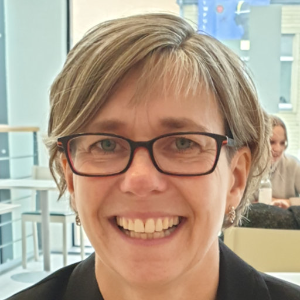Title: Challenges to interpret outcome from clinical laboratory analytes, in >80-year-old, apparently healthy, moderately healthy, and frail individuals
Abstract:
Background: In clinical practice, blood samples are used to assess health condition, confirm diagnosis and treatment. When interpreting the results, comparison with reference intervals, often constructed from healthy persons, aged 18–65 years, are used. It is a challenge to determine whether a change in levels of laboratory analytes in especially frail elderly individuals can be attributed to age alone, independent of environmental, or chronic disease processes. Health and disease are part of the same continuum with no fixed points for either “health” or “disease”, e.g. in relation to ageing. Also, although many elderly persons suffer from health problems, others stay in good health, often with diagnosed but well treated diseases. Consensus about the definition of “frailty” is missing, and the question arises whether different definitions of “frailty” affect the interpretation of analytes when comparing different groups of elderly.
Aim: To interpret circulating levels of clinical laboratory analytes in relation to conventional reference values in ≥80-year-old, “apparently healthy”, “moderately healthy”, and “frail” individuals.
Methods and results: First, 14 immunological and chemical laboratory analytes from 138 nursing home residents (NHRs), ≥80-year-old, were compared with outcomes in reference populations. Results indicated significantly differences (p<0.05 to 0.001) for 10 of the analytes, with risk of misinterpretation when assessing e.g. levels of immunoglobulin M, complement factors 3 and 4, and alanine aminotransferase (ALT). Whether it depended on age, chronic diseases and/or medication between the NHR and reference populations remained unclear. Next, individuals ≥80 years (n=569) were classified as “healthy”, “moderately healthy”, and “frail”, based on diseases, medication and physical and cognitive abilities. Activities of daily living (ADL) were used to test physical abilities and mini-mental state examination (MMSE) for cognitive abilities. Differences (p<0.01) occurred between the health groups for the analytes albumin, ALT, aspartate aminotransferase (AST), creatinine and gamma-glutamyltransferase (γ-GT). Finally, the individuals (n=569) were randomized into two groups, and thereafter, the two groups were divided into “apparently healthy”, “moderately healthy”, and “frail”, based on two classification models; 1/ based on diseases, medication, physical (ADL) and cognitive (MMSE) abilities or 2/ based on a frailty index (FI). Deficits in health, like symptoms, sign and diseases can be included in FI. There was no statistical difference found between “apparently healthy” and “moderately healthy" groups, regardless of classification model used. In contrast, among “frail” individuals, differences (p<0.05) in levels occurred for three out of the five investigated analytes: ALT, creatinine and g-GT showed lower levels when the FI classification model was used.
Conclusion: Frailty affects the outcome of some laboratory analytes, and the way it is defined affects the future work with adjusted reference intervals. There is an urgent need for developing and implementing the use of reference intervals that consider both age and health status in elderly individuals, to avoid under- and overtreatment. Both classification models seem suitable to classify health status in elderly (>80 y) and could be a tool for developing consensus for the definition of frail elderly.



